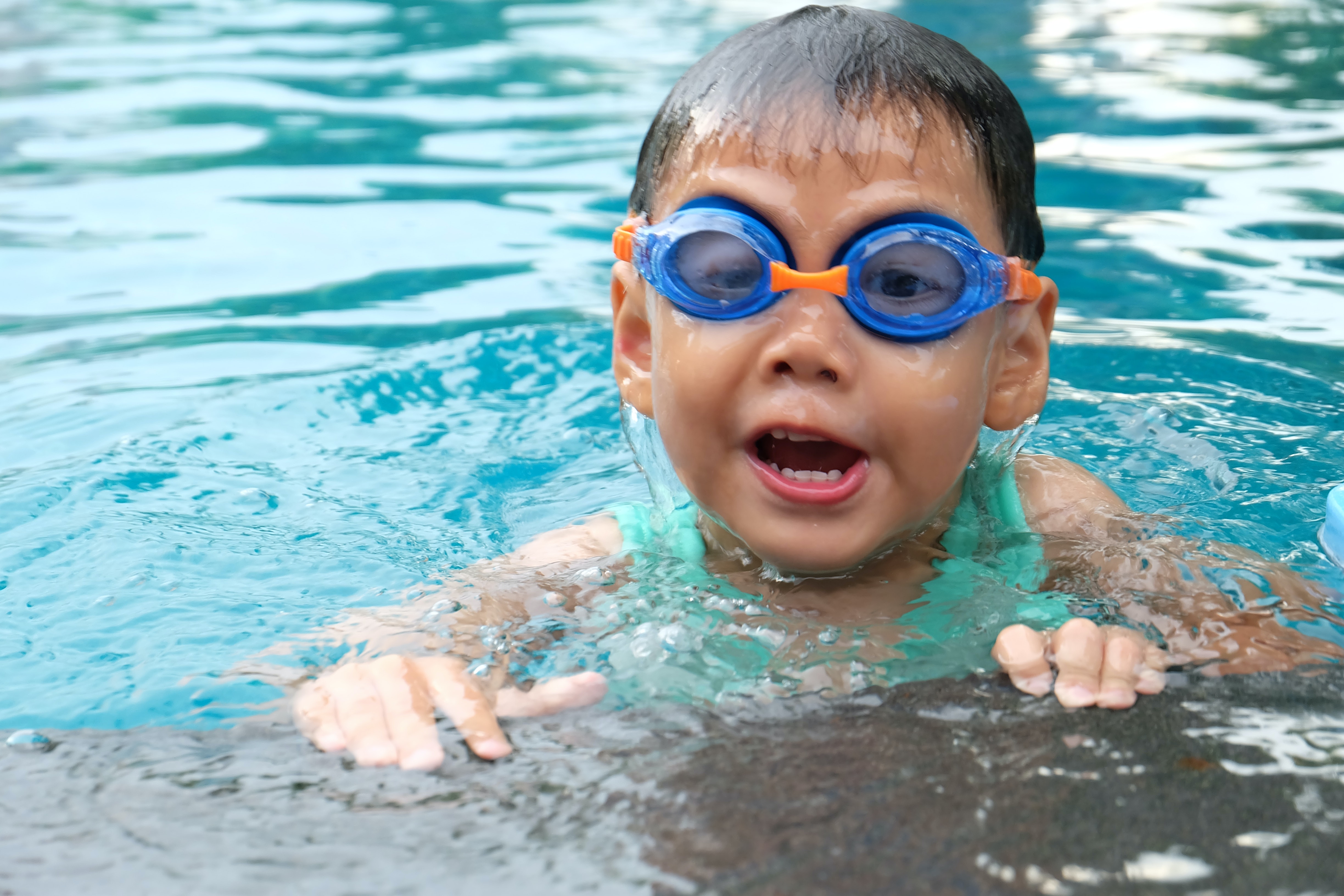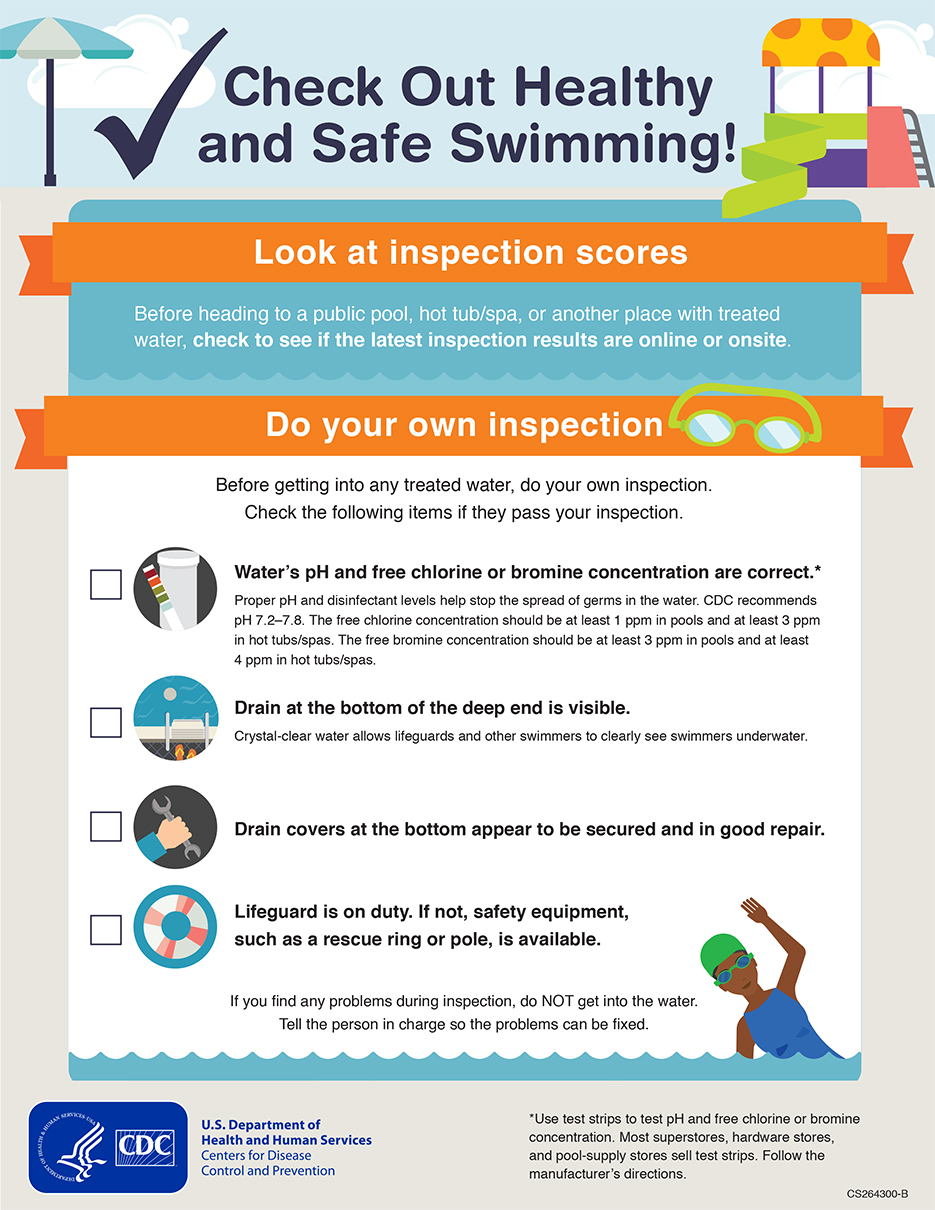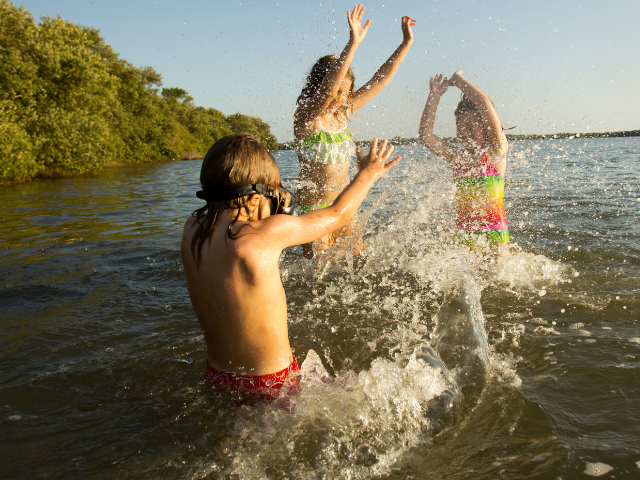Pools and Beaches
Swimming pools, splash pads, and beaches are fun ways to cool off, be active, and get exercise. New York State has several rules and codes in place to ensure these areas are clean, safe, and healthy for residents and visitors. Schenectady County regulates swimming pools, bathing beaches, and recreational aquatic spray grounds in accordance with New York Codes, Rules, and Regulations, Part 6.
Need a Permit?
You can apply online or call Schenectady County Public Health Services Environmental Health Division.
→ Apply Online → 518-386-2818
Healthy Swimming Tips & Resources
People across the country swim hundreds of millions of times each year in pools, oceans, lakes, rivers, and hot tubs. Millions more enjoy their local splash pad or spray park. Without a doubt swimming and playing on a water playground is the most popular recreational activity for children and teens (ages 7-17). While most people have a safe and healthy time enjoying the water, illnesses and injuries can occur. (Centers for Disease Control & Prevention, May 1, 2023)
What can you find on the CDC Website?
- Healthy ways to protect yourself and people you care about from common swim-related illnesses
- Tips for cleaning a pool after finding an animal in it
- The best way to disinfect your pool after an incident involving bodily fluid
Know the Signs of Drowning
Every year, hundreds of New Yorkers drown, even experienced swimmers. Drowning can happen in an instant, anywhere near water. It is important to know the signs of drowning while reducing your risk and swimming safely.
- Always swim with a friend or buddy
- Keep your eye on your children at all times when around water
- Choose a safe area to swim at the public beach and stay within designated zones monitored by a lifeguard
- Know your abilities and your health.
- When boating or operating a jet ski, always wear a life jacket
You can reduce your risk of drowning and save a life by learning basic swimming skills and CPR.







.gif)

